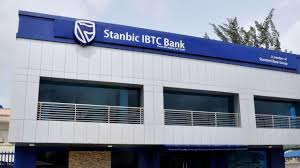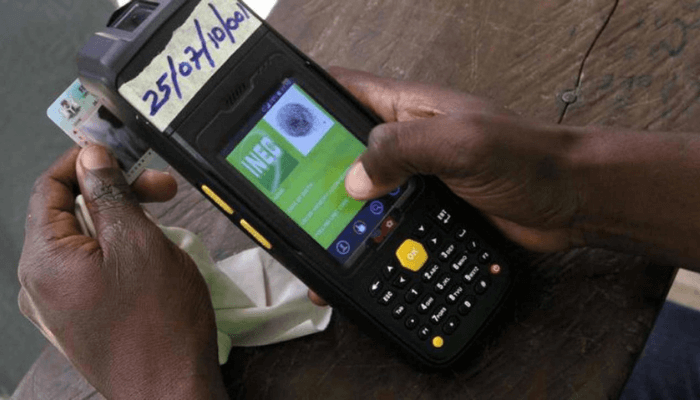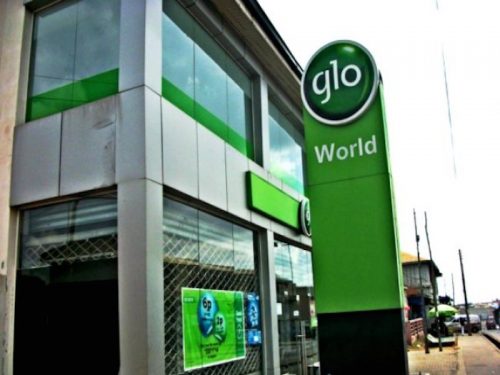TCN’s Fibre Optic Saga: Alheri, Phase 3 owe FG N27.18bn in 11 years

…Fashola writes Buhari, seeks EFCC, others probe of Phase 3, Alheri (Dangote subsidiary)
…Raises conflicts of interest by Makoju, Diko with Dangote, Jegede, Ex- Minister Cornelius Adebayo’s son-in- law
The Federal Government’s ongoing war against corruption and sleaze may be a Herculean task to accomplish, following a startling revelation that two indigenous Nigerian firms, Phase 3 Telecom Limited and Alheri Engineering Company Limited are owing Federal Government a whopping $75,500,000.00million (about N27.18billion at N360 to $1) over fibre optic agreement.
The Daily Times further gathered that the two firms might have generated over N500billion and allegedly diverted the funds through the failed concession agreement. Phase 3 Telecom and Alheri Engineering, both concessionaires, used the platforms and the facilities of the Transmission Company of Nigeria (TCN) during the pendency of concession agreement to service their customers.
The Daily Times is in possession of documents which indicted the two firms of being complicit in the humongous ripping-off of the Federal Government’s funds for 11 years. The deal, which probably must have given the government some hard nuts to crack, has however caught the attention of the Minister of Power, Works and Housing, Mr. Babatunde Fashola (SAN), who has sought the personal intervention of President Muhammadu Buhari to recover the funds and take possession of the critical infrastructure.
Read Also: TCN spends N2.5 bn to clear abandoned equipment
Fashola, armed with overwhelming evidence and the huge rip-off involved, has written a letter to Buhari for his information and intervention. He is first seeking the intervention of the President to unravel the circumstances of the failed contract and to unmask the faces of firms/ individuals involved, one of which is allegedly linked to a Nigerian business mogul.
Fashola, in his letter with Ref No FMP/OPS/ 06/1 and dated November 31, 2017 to President Buhari, entitled, Re: Concessioning of Transmission Company of Nigeria (TCN) wrote: “I write to respectfully draw your Excellency’s attention to ongoing efforts by the management of the Transmission Company of Nigeria (TCN) to enforce its termination of two failed Fiber Network concession Agreements, recover its outstanding concession fees in the sum of USD 75,500,000.00million from the two concessionaires, and take position of and commercialize its critical fiber optic infrastructure, which are essential for the stability and optimization of the national grid. “TCN owns and operates the national grid, which consists of 8,336 km of 330kV transmission lines, 8,071 km of 132kV transmission lines, and 191 3301732133kv substations that convey electricity nationwide from power stations where the electricity is produced, to distribution companies who receive it for onward delivery to households, businesses and industries across the country.
TCN is currently 100 per cent owned by the Federal Government of Nigeria. TCN’s transmission lines are built with fiber optic lines which can convey telecommunications signals nationwide.”
Fashola’s letter to the President further reads in part: “In 2006, the National Electric Power Authority (NEPA) entered into two separate Concession Agreements with Phase 3 Telecom Limited and Alheri Engineering Company Limited (“Concessionaires”). The Power Holding Company of Nigeria (PHCN) inherited the Concession Agreements when it was created pursuant to the Electric Power Sector Reform Act of 2005.
TCN in turn inherited the Concession Agreements when it was carved out of PHCN pursuant to the unbundling of PHCN. “The Concession Agreement provided for the Concessionaires to take over the operation of TCN’s fiber optic network (which is part of TCN’s electricity transmission lines); build, operate and transfer enhancements of the fiber optic network, over a period of 15 years; and use the assets to provide telecommunications services to third parties.
“The Concessionaires were to pay a concession fee of $40 million each for the use of TCN’s assets to service their customers. The concession fee it was not just for the right-of-way upon which the transmission lines are constructed, but also for the use of the fiber optic network, which was built by TCN along with the transmission lines.
The agreements also provided for shelter fees of 2.5o/o royalty/on gross revenue. “Since 2006, Phase 3 and Alheri have paid only $2million and $3.5million concession fees, respectively.
The Concessionaires have also failed to build most of the enhancements their Concession Agreements required them to build, operate and transfer.” In what can be regarded as obvious frustrations in his bid to recover the outstanding concession fees, Fashola, said: “All efforts by TCN management to ensure the Concessionaires pay their outstanding debts failed, notwithstanding the significant revenue they collect from the customers they service using TCN assets.
“Their customers include all the Mobile Network Operators in Nigeria, who rely on TCN’s fiber optic network, through the Concessionaires, to deliver services to their 139 million subscriber lines nationwide, effective commercialization of TCN’s fiber network would transform TCN’s current poor financial position by adding an income stream that does not depend on the current poor payment performance of the distribution companies. Such revenue could have been used to supplement TCN’s current unsustainable sources of capital from FGN budget and multilateral lenders to more effectively finance its operations, grid rehabilitation and expansion”.
Fashola had also in the letter attempted to draw comparison with the situation in other climes, saying that: “In peer transmission networks in India, Brazil, and South Africa, the grid operators derive a significant part of their revenue (in some cases higher than revenue derived from electricity transmission) from the commercialization of their fiber optic network.
“However, in Nigeria, TCN’s ability to draw on this important income stream was frustrated by the current failed Concession Agreements. The entire revenue stream has been unfairly appropriated by the Concessionaires without commensurate benefit to TCN as provided for in the Concession Agreements.
“Consequent to the default in payment by the two Concessionaires, TCN management terminated the two contracts. This unavoidable step was in line with Article 25.1.1 (g) of the Concession Agreement. It was taken after several meetings with the Concessionaires failed to resolve the default.
TCN had previously sought the intervention of Infrastructure Concession Regulatory Commission (ICRC) and Nigerian Communication Commission (NCC) on the matter but to no avail. Phase 3 and Alheri owe TCN concession fees of $36.5 million and $38million respectively.” “Non-adherence to the use of 50 per cent of the network by the concessionaires as clearly stipulated in the agreements.
The concessionaires had in many instances in the network, taken more than 50%, which has significantly constrained TCN from optimizing the telecoms’ infrastructure, which are critical in the control, and monitoring of transmission network.”
Fashola further went to raise the issue of conflicts of interest by the dramatis personae involved in the concession agreement, saying that it is regrettable that the development has prevented the TCN from recovering the staggering amount for the use of federal government and Nigerians.
He said, “The concession Agreements were entered into under circumstances of conflicts of interest. This may explain previous TCN’s management’s failure to protect and enforce the rights of TCN under the concession Agreements.
“It has been discovered that (a) Phase 3 is owned and managed by Mr. Stanley Jegede. He is married to the daughter of Cornelius Adebayo, who was minister of communications at the time the company obtained the long distance license (NLFL). This is a conflict of interest; (b) Engr. Joseph Makoju, who signed the Concession Agreement on behalf of NEPA (TCN) as the then Managing Director, is now an Executive in Dangote Group, owners of Alheri, and has signed letters on behalf of Alheri related to the Concession Agreement. This is also a conflict of interest; and (c) Infrastructure Concession Regulatory Commission (ICRC) mediated between TCN and the Concessionaires over nonpayment.
The former DG, Aminu Diko was, before his appointment at ICRC, an employee of the Dangote Group for several years. This is a clear case of conflict of interest; and casts doubts on the integrity of the mediation report. “
Additionally, there are reports reaching TCN that Phase 3 is in the process of acquiring Alheri. This is evidenced by the fact that Alheri staff managed and paid by Phase 3 and the two companies have elected to be represented by the same counsel in the case they recently filed against TCN and Ministry of Power Works and Housing. TCN has not been formally informed of any change of ownership of the Concessionaire, as is required under its Concession Agreement.
“TCN believes the nondisclosure of the above facts constitutes a fundamental breach of the terms of the Concession Agreements and provides additional grounds for termination, beyond the egregious and brazen default in payment. Fashola also informed the President that following the termination of the contract, both concessionaires were given the option to propose the remedies through arbitration. He added that Phase 3 and Alheri Engineering failed to make any concrete proposals in this regard.
The minister further disclosed that the two firms had decided to frustrate the legitimate right of the TCN to recover its critical assets and its outstanding concession fees by instituting frivolous court action against TCN and the Ministry of Power, Works and Housing.
According to Fashola, Phase 3 and Alheri Engineering are now challenging the propriety of the termination of the contract, saying that their action is a clear violation of the recent judicial directives precluding litigation in agreements with arbitration clauses. Concluding his letter, Fashola urged President Buhari to take a judicial notice of the fact that, “ Due to the manifest breach of the Fiber Network Concession Agreements by the concessionaires, and the existence of conflicts of interest as shown in the foregoing paragraphs, I concur with the position of TCN management that the agreements were voidable and that they stand terminated.”
The minister further informed the President that there is the need for the collaboration of government agencies including the Economic and Financial Crimes Commission (EFCC) to assist in the recovery of the outstanding concession fees.
He said , “I humbly and respectfully bring this situation to your Excellency’s attention and seek your Excellency’s directive to relevant Government agencies (DSS, EFCC, Ministry of Justice, Ministry of communications, NCC, ICRC) to support TCN as it takes deliberate and reasonable steps to recover its outstanding concession fees, and to fully recover these critical assets of government without avoidable disruption to the third parties who rely on TCN’s fiber optic network. These steps are essential for the stability, optimization and continued expansion of the national grid.”











